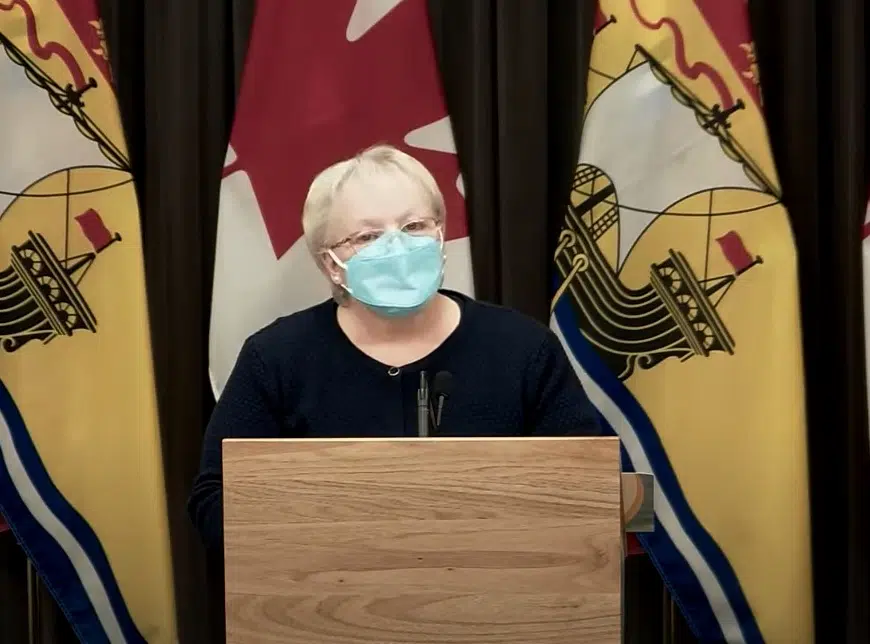
NB Health Minister Dorothy Shephard (Photo: Government of New Brunswick YouTube)
Changes come into effect tonight in New Brunswick for COVID-19 testing.
The following measures will come into effect at 11:59 p.m.
PCR tests will be reserved for:
- People in areas at highest risk, including health-care workers and those who live or work in long-term care facilities, homeless shelters and correctional facilities.
- People who are symptomatic and aged 50 and over.
- People who are symptomatic and immunocompromised or pregnant.
- People who need a PCR test for travel.
- People who are identified as a priority by Public Health.
- Everyone else, including those who are symptomatic but under 50 and do not live in a vulnerable setting, will be advised to take point-of-care rapid tests when symptomatic. A positive rapid test will be treated as a positive result for COVID-19 and people will be asked to register their result through a new form that will be available online next week. They will also need to follow new isolation guidelines.
These changes are expected to increase the demand for rapid tests.
Health Minister Dorothy Shephard is confident there will be enough to distribute, “On January the 6th, we will be receiving another 504,000, which the province has purchased. Then between January 7th and the 12th, we’ll be receiving another two million rapid tests for the public, so we feel we have a good supply.”
Meanwhile, new isolation guidelines also come into effect in New Brunswick on Tuesday night.
Vaccinated people who have tested positive and asymptomatic close household contacts will only need to isolate for five days.
Unvaccinated people who have tested positive, as well as unvaccinated asymptomatic household contacts, will need to isolate for 10 days.
Close contacts outside of a household will be asked to mask continuously, avoid vulnerable settings and people, and limit their contacts as much as possible for at least 10 days.
After isolation, people must wear a mask continuously and avoid vulnerable settings and gatherings for the next five days.
If a close contact develops symptoms, they will be directed to take a rapid test, unless they meet the requirements for a PCR test.
Public Health said the shorter isolation period is being introduced to help prevent staff shortages among those who support critical infrastructure.
With files from Tara Clow and Brad Perry.






